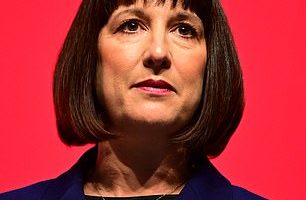THESE days it is tougher than ever to save for a rainy day.
And worryingly, 14million of us don’t have any spare cash to pop in the piggy bank. But even stashing just a few pennies can help. Sun Money’s Lucy Alderson gives her top savings tips.
SORT YOUR BUDGET
WORK out a budget based on how much you can afford to save.
Figure out how much you are spending on bills and essentials every month. If you have any money left over, decide what amount to pop into your savings.
Making a budget is a great way of seeing how you can cut back on spending, according to Helen Morrissey.
The senior analyst at financial firm Hargreaves Lansdown, says: “We all have rogue direct debits for services we no longer use and periodically checking your bank account and cancelling them can free up a lot of money.”
TACKLE YOUR BUDGETS
CLEAR your debt before you start thinking about saving.
That’s because the faster you pay off the money you owe, the less interest you’ll have to pay to your lender.
There are different methods for dealing with debt, from the snowball method — where you pay off the smallest amount first — to clearing the one which makes you feel the most anxious.
Debt charity Stepchange’s head of media Sue Anderson advises paying the debt with the highest interest rate.
“You may have to wait longer to fully clear some of your accounts, but it will be a cheaper and more efficient way to clear your debt in the long run,” she said.
You can get free debt advice from Stepchange and other groups, such as Citizens Advice and National Debtline.
USE GOVERNMENT SAVINGS SCHEMES
HARD-UP households can use government schemes set up to help those on low incomes boost their savings.
The Help To Save scheme is available to those claiming some benefits, including Universal Credit, which sees the government give you 50p for every £1 you set aside.’
You can save a maximum of £2,400 a year — or £50 a month — and you’d earn and extra £1,200 in FREE cash.
While Moneycomms personal finance expert Andrew Hagger said it was a “brilliant” initiative, he warned of some drawbacks.
He said: “The bonuses are only paid after two and four years, whereas people are struggling to make ends meet now — so the benefit isn’t immediate. But even if you only have a few pounds to set aside then do it — the return is more than 30 times as much as you’ll get in a best-buy easy access savings account.”
BE APP SAVVY
GETTING into the habit of saving yourself can be hard — but there are handy apps that can help you stash cash away without even noticing.
They work by crunching data on how much you can afford to save, and move this money automatically from your current account.
Plum and Chip are examples of these sorts of money apps — which are also free to download.
Helen added: “Automatic savings apps can also make it easier to save, depending on which one you use you can either get it to save a certain amount per month or it can round up your purchases and divert the extra money into a savings account.”
SAVINGS CHALLENGE
STRUGGLING to squirrel your cash away? If you’re competitive then a savings challenge could be a good way to find spare pennies.
One of the most popular for those on tight budgets is the 1p challenge, which works by saving a penny more each day for a whole year, until you have £667.95 by New Year’s Eve.
While the cash stuffing challenge — where you pop cash into envelopes to save for outgoings such as clothes, food and bills — can help you monitor your cash.
“By gamifying the process, you’re more likely to keep focussed and motivated on your savings goal,” founder of lookingafteryourpennies.com Charlotte Jessop said.
“You can even make your own savings challenge up — why not pay 50p every time it rains, or when your mum texts?”
WHERE TO STASH YOUR CASH
IF you’re lucky enough to have money to spare after you’ve paid all your bills and essentials, you’ll want to know where best to put it.
You can earn interest on your cash — but make sure you shop around for the best rates, AJ Bell head of investment analysis Laith Khalaf said.
Use online comparison tools such as moneyfacts or moneysavingexpert to help you do this.


You tend to get offered a higher fixed rate if you sign up for a deal between one and five years.
But bear in mind that interest rates are rising as the Bank of England attempts to curb inflation — which means you could be missing out by locking down.















